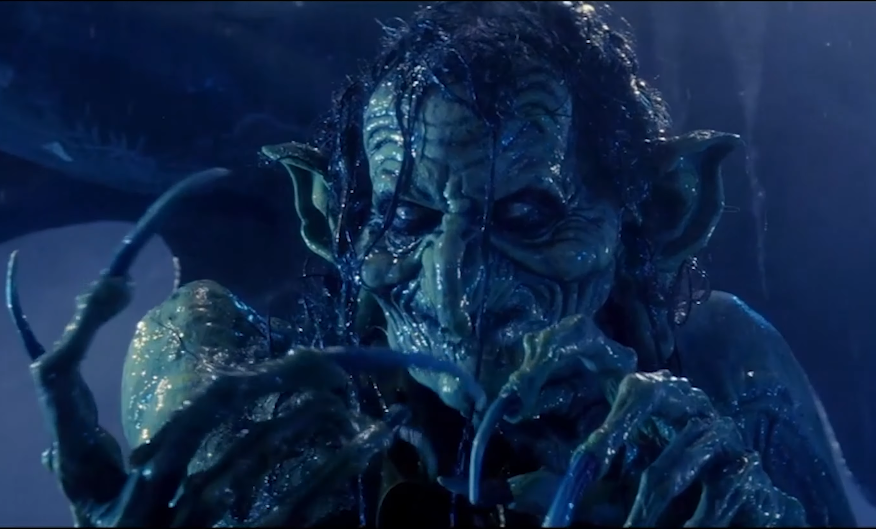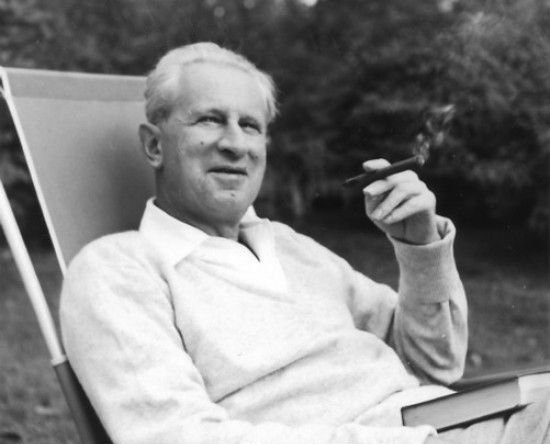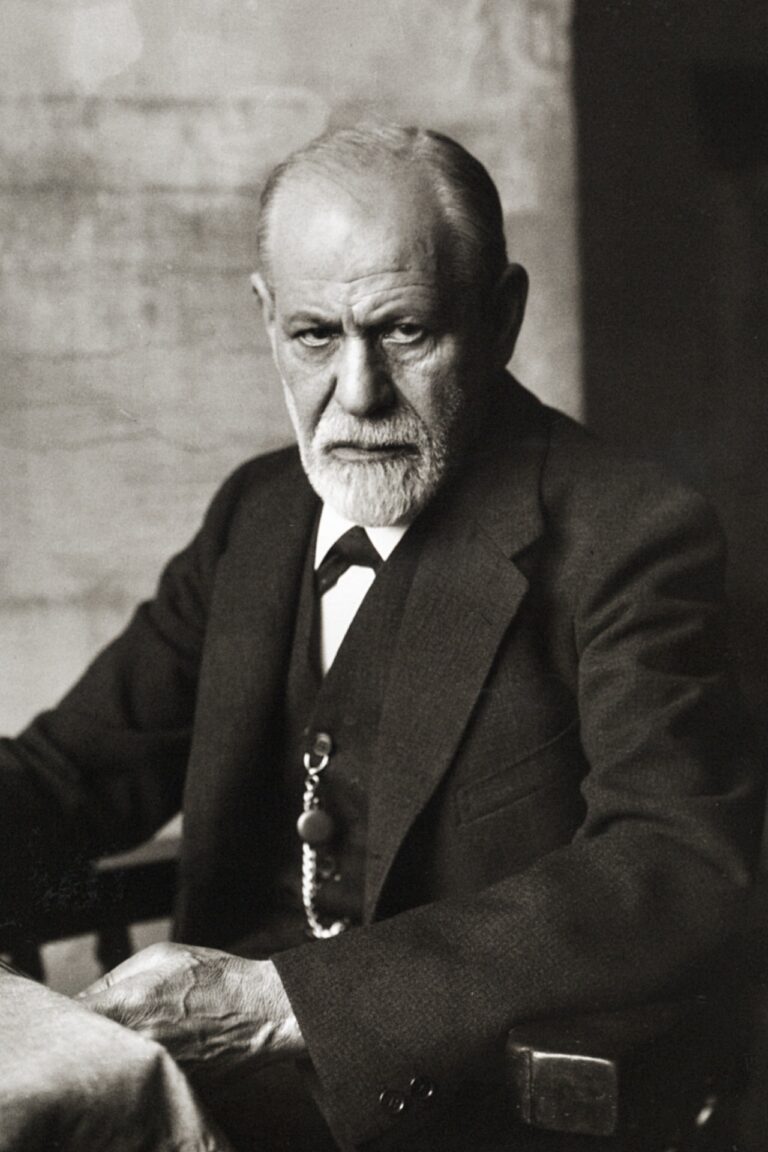
Continuing on again from my last article, we focused on the aphorism “Beautiful and Ugly”written in Twilight of the Idols by Nietzsche, now we follow on the next aphorism which is “Nothing is beautiful, only man” and let nobody tell you that you can’t get inspiration from reading just one page!
While Comicus celebrated the concepts of beauty, grace, and harmony in his article on the Birth of Venus, we present to you a contrasting perspective that focuses on the themes of ugliness, decay, and disharmony of form. Thanks to food for thought provided by Nietzsche, inspiration has come to be about linking ugliness to entropy in the context of aesthetic philosophy. If we accept ugliness to be associated with decay and deformation, then what is the real driving force behind decay and deformation? The answer: look no further than the second law of thermodynamics.
To briefly define entropy for those that don’t know, it’s a fundamental concept in thermodynamics that refers to the amount of disorder or randomness in a system, this means that systems tend to become more disordered and random as time goes on, leading to an inevitable march towards chaos. And if you think entropy is just a theoretical concept, think again! It has important implications for understanding the behaviour of everything from engines to ecosystems, and even the evolution of the universe itself.
As Nietzsche put it, “The ugly is understood as a sign and symptom of degeneration: that which recalls degeneration, however remotely produces in us the judgement ‘ugly’”.
In applying this idea of entropy to aesthetics, we might say that ugliness is associated with the breakdown or disintegration of aesthetic structure or order. Ugly things might be those that lack harmony, symmetry, or balance, or that are marked by disorder or chaos. Think of Meg Mucklebones from the 1985 film Legend. Her grotesque appearance and association with decay and destruction stand in stark contrast to the traditional notions of beauty (like the Birth of Venus) and she can be seen as an example of the way that ugliness and decay are often used in contrast to beauty in literature and art.
“Everything ugly weakens and afflicts man. It recalls decay, danger, impotence; he actually suffers a loss of energy in its presence.”—Nietzsche
Many cultures throughout history have associated beauty with youth and health, and that these qualities are often seen as attractive or desirable in romantic or sexual relationships. This association is rooted in evolutionary psychology, which suggests that humans have evolved to find certain physical characteristics (such as clear skin, symmetrical features, and a healthy body) attractive because they signal reproductive fitness and the potential for healthy offspring.
From this perspective, ugliness might be seen as a kind of negative aesthetic force, one that opposes the order and structure that we typically associate with beauty. As an organism ages, its internal systems become less efficient and more disordered, leading to a decline in overall function and an increased susceptibility to disease and other negative health outcomes. The immune system becomes less effective at fighting off infections and the cardiovascular system becomes less efficient at pumping blood and delivering oxygen and nutrients to the body’s tissues. As we age, our cells become less efficient at repairing damage and maintaining healthy functions. This can lead to the accumulation of damage over time, which in turn can lead to a wide range of diseases demanding attention from our medical services. For example, with the formation of beta amyloid plaques in the brain there results the degradation of neuronal synapses, characteristic of the beginning of Alzheimer’s disease.
Being the subject of increasing old age and bearing as the witness to the breakdown and disintegration of our bodies can feel like a cruel joke played by nature. Our cells, organs, and systems become less efficient and more disordered, leading to a sense of decay and degeneration that challenges our aesthetic sensibilities and evokes negative emotions such as fear, disgust, pity or nostalgia. This process of aging can be seen as a kind of ugliness that stands in stark contrast to the beauty and harmony we typically associate with youth and health.
“Whenever man feels in any way depressed, he senses the proximity of something ‘ugly’. His feeling of power, his will to power, his courage, his pride—they decline with the ugly, they increase with the beautiful.”
When we watch old videos of ourselves from our youthful days, we wince as we recall our younger bodies and realize that we’ve lost something precious. This pattern of nostalgia with the passage of time is something I’ve noticed among my friends and family, and it’s a painful reminder of what we have lost or what we are in the process of losing. The experience of watching old videos from our past can be incredibly powerful, evoking a wide range of emotions, from joy and nostalgia to sadness and regret.
Entropy, the insidious force that gradually pushes everything towards disorder and chaos, is a formidable foe of beauty, youth, health, and fertility, all of which rely on structure and order to thrive. Unfortunately, decay—the unpleasant side effect of entropy—acts as a powerful antagonist to the strength and vitality of human life.
Not surprising that after all has been said in the article we may feel a sapping of our spirit, but as a philosophy of strength we conclude in a characteristically Nietzschean fashion. The will to power, then, is a means of resisting this tendency, of asserting one’s own order and structure in the face of entropy. It is a way of imposing beauty on ugliness, harmony on disharmony, and form on chaos. Nietzsche’s concepts of beauty, ugliness, and the will to power can help us to understand the relationship between aesthetics and entropy. Ugliness and decay are the natural result of entropy, but the will to power allows us to resist this tendency and create order and structure in the face of chaos. Ultimately, it is through the will to power that we are able to create beauty and harmony in a world that is constantly pushing towards disorder and decay.
“To be beautiful means to be yourself. You don’t need to be accepted by others. You need to accept yourself.” (Ecce Homo)

